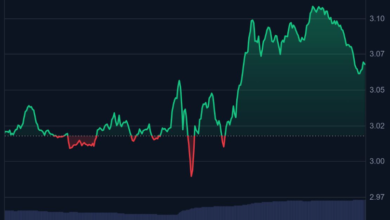Indexed Universal Life Policy: A Versatile Path to Protection and Growth

In the evolving world of personal finance, individuals and families are looking for insurance solutions that do more than just provide a death benefit. Among the various types of permanent life insurance available, the indexed universal life policy (commonly known as IUL) has gained significant popularity. This policy type offers both protection for loved ones and the potential for cash value accumulation tied to the performance of a stock market index. This article explores what indexed universal life policies are, how they work, the benefits they offer, and important factors to consider before purchasing one.
What Is an Indexed Universal Life Policy?
An indexed universal life policy is a form of permanent life insurance. Like all universal life insurance, it includes a death benefit and a cash value component. The unique feature of an IUL is how the cash value grows—it is linked to the performance of a financial index such as the S&P 500, not invested directly in the market. This linkage offers policyholders a chance to earn interest based on index performance while also enjoying protection from market losses through a guaranteed minimum interest rate, often referred to as the floor.
See also: How Businesses Are Leveraging AI Video Generators for Growth
How Does It Function?
An indexed universal life policy begins with the policyholder making premium payments. These premiums are allocated toward the cost of insurance, administrative fees, and the cash value portion. The cash value earns interest based on the performance of the selected index, but subject to certain limits—namely, a cap rate and a participation rate.
For example, if the cap rate is 10% and the index grows by 15% in a year, your cash value will only be credited up to 10%. If the participation rate is 80% and the index grows by 10%, you would be credited with 8% interest. Importantly, if the index performs poorly, your interest rate could be 0%, but it won’t be negative. This ensures that your principal (the premiums allocated to the cash value) is not lost due to market downturns.
Benefits of an Indexed Universal Life Policy
1. Lifetime Insurance Protection
One of the main advantages of an IUL policy is that it offers permanent coverage as long as premiums are paid and the policy remains in force. Unlike term life insurance, which expires after a set number of years, an IUL covers you for your entire life.
2. Potential for Tax-Deferred Cash Growth
The cash value of an IUL grows tax-deferred. This means that policyholders won’t pay taxes on gains as long as they remain in the policy. This feature makes the IUL a valuable tool for long-term wealth accumulation and estate planning.
3. Market-Linked Interest Without Risk of Loss
Unlike investing directly in the stock market, an indexed universal life policy protects you from market downturns. Even if the index experiences a negative year, your cash value won’t decrease due to the market, thanks to the floor (usually 0%).
4. Flexibility in Premium Payments
Policyholders have the freedom to adjust their premium payments based on their financial situation. You can pay more than the required amount to boost your cash value or reduce payments if your finances become tight (as long as the policy’s cash value can cover the costs).
5. Tax-Free Access to Cash Value
Another benefit is the ability to access the cash value through policy loans or withdrawals. If structured properly, policy loans can provide a source of tax-free income. This is particularly appealing to those looking to supplement retirement income.
6. Adjustable Death Benefit
An IUL allows the policyholder to adjust the death benefit according to their needs and life changes. This flexibility ensures the policy remains relevant and useful through different stages of life.
Ideal Candidates for an IUL
An indexed universal life policy isn’t for everyone. It is best suited for individuals who:
- Are seeking permanent life insurance coverage
- Want to build cash value in a tax-efficient manner
- Have maxed out other tax-advantaged retirement options (such as 401(k)s or IRAs)
- Are comfortable with a moderately complex financial product
- Have long-term financial planning goals, such as estate planning or supplementing retirement income
Important Considerations
While an indexed universal life policy can be a powerful tool, it’s essential to consider a few critical factors before purchasing:
1. Fees and Charges
IUL policies come with a variety of fees—cost of insurance, administrative fees, and sometimes surrender charges. These costs can significantly impact the cash value if not carefully managed.
2. Complexity of Policy Structure
The way interest is credited to the cash value (with caps, participation rates, and spreads) can be complicated. It’s important to fully understand how your policy works before committing to it.
3. Loan Management
Borrowing from your policy can be beneficial, but mismanagement of loans can cause the policy to lapse or result in a taxable event. Proper planning and regular reviews with a financial advisor are necessary to avoid negative outcomes.
4. Variable Performance
While the cash value growth potential is attractive, it’s still dependent on market performance within the given cap and participation limits. It’s essential to have realistic expectations and not rely solely on optimistic projections.
How It Compares to Other Life Insurance Types
Vs. Term Life Insurance:
Term life is significantly cheaper and simpler but only provides coverage for a set period. IUL offers lifelong coverage and a savings component, making it more versatile but also more expensive.
Vs. Whole Life Insurance:
Whole life provides guaranteed growth and fixed premiums. IUL, on the other hand, offers potentially higher growth based on market index performance but with more complexity and variability.
Vs. Variable Universal Life (VUL):
Both IUL and VUL offer market-related growth potential, but VUL policies invest directly in sub-accounts similar to mutual funds, which exposes the cash value to market losses. IULs provide downside protection, making them less risky.
Role in Estate and Retirement Planning
Many individuals use indexed universal life policies as part of their estate planning strategy. Because the death benefit is paid income-tax-free to beneficiaries, it can help preserve wealth and provide financial security for future generations.
Additionally, retirees use IULs to supplement income. By taking policy loans against the cash value, they can generate a stream of income that does not count as taxable income under IRS rules, as long as the policy stays in force.
Customization Options
IULs are highly customizable. Policyholders can choose from various riders to enhance their coverage, such as:
- Accelerated Death Benefit Rider: Access part of the death benefit in case of terminal illness.
- Long-Term Care Rider: Helps cover long-term care expenses.
- Waiver of Premium Rider: Keeps the policy active if you become disabled and can’t pay premiums.
Conclusion
An indexed universal life policy is a powerful financial product that offers the dual benefits of lifelong insurance protection and the potential for cash value accumulation tied to the market index. For the right person, it can be a flexible and tax-efficient tool for building wealth, planning for retirement, and protecting loved ones.
However, its complexity, fees, and reliance on market conditions mean it is not suitable for everyone. As with any financial product, it is crucial to evaluate your individual goals, consult with a knowledgeable advisor, and fully understand how the policy works before committing. When used wisely, an indexed universal life policy can become a cornerstone of a comprehensive financial and estate plan, offering both peace of mind and long-term financial benefits.





